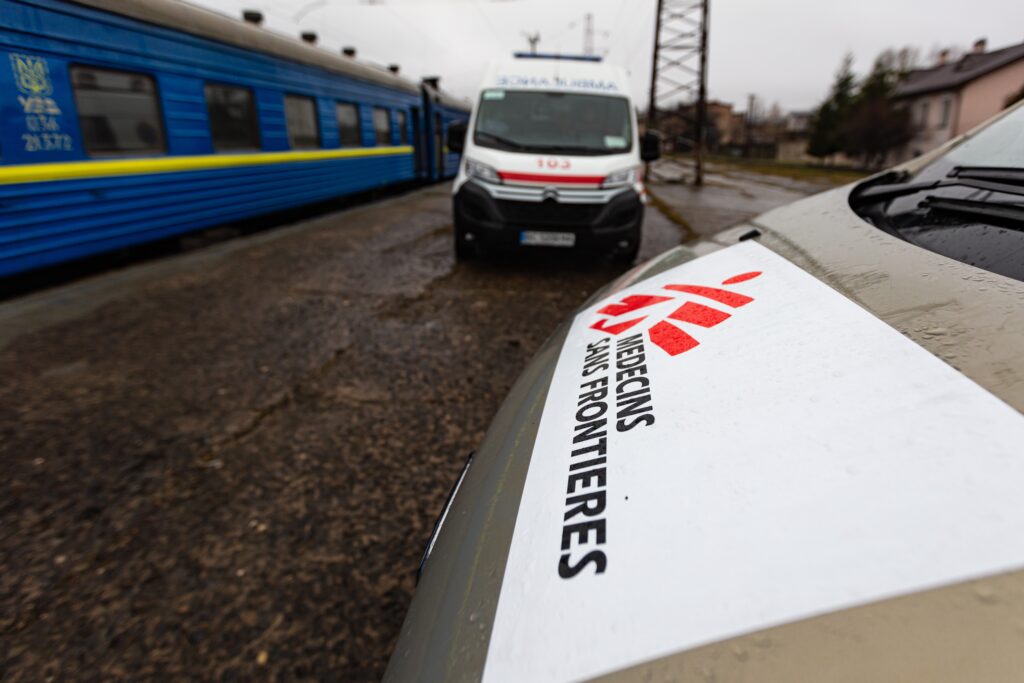Six young children in the Samos migrant camp have been diagnosed with moderate to severe acute malnutrition, marking the first confirmed cases since 2021. The children, aged between six months and six years, arrived in Greece from Afghanistan and Syria in the past three months. According to Doctors Without Borders (MSF), poor camp conditions have worsened their already fragile health. Medical staff are calling for urgent help, as the standard meals provided lack the nutrition children need to grow and recover.
Alarming Malnutrition Cases Detected in Samos
Doctors Without Borders (MSF) confirmed the recent diagnoses after examining the children, who are now receiving emergency care. The group warns that the health services in the Samos camp are dangerously limited, especially for children. Christina Psarra, head of MSF Greece, said that pediatric services on the island are “shockingly inadequate” despite children making up 25% of the camp’s population.
“Children are arriving already weak after long and difficult journeys,” said Psarra. “The lack of proper food and medical care only makes things worse.”
All six affected children were found to be severely underweight and at risk of serious illness. MSF emphasized that this is the first such cluster of malnutrition cases in the camp since 2021, raising serious concerns about ongoing care and living conditions.
Poor Living Conditions in the Samos Camp
The Samos facility, located about eight kilometers from the town of Vathy, currently holds over 3,100 people. It was opened in 2021 with funding from the European Union to replace a former overcrowded site near the port. Despite the new structure, conditions remain harsh.
MSF staff point to poor sanitation, water shortages, and overcrowding as key factors damaging residents’ health. Camp meals are mass-produced and lack fresh ingredients. For young children, this diet fails to meet essential needs for growth and recovery.
“We are seeing children who are not only hungry but also sick and emotionally exhausted,” said an MSF nurse. “They need fresh food, clean water, and safe shelter.”
Policy Changes Deepen the Crisis
MSF also criticized a decision by Greek authorities to cut asylum seekers’ food allowances nine months ago. This move effectively ended access to fresh produce and left many families struggling to feed their children properly. Although meals are still distributed inside the camp, they are not tailored to meet children’s nutritional needs.
The change in policy came without clear alternatives for those affected. Many families now rely on humanitarian groups like MSF for basic health checks and nutritional support.
“Removing food support for families in crisis is dangerous,” said Psarra. “Children suffer the most from such decisions.”
Dangerous Journeys Continue to Greek Islands
Despite the risks, many people continue to cross the sea from Turkey to reach islands like Samos. Refugees often travel in overcrowded, unsafe boats. Last week, an inflatable vessel capsized off the coast of Lesbos, killing at least seven people, including three children. Greek authorities rescued 23 survivors and took them to a local migrant facility.
Tragedies like this highlight the ongoing dangers faced by those seeking safety in Europe. Rights groups have long warned about the dangerous conditions in Greek camps and continue to report poor hygiene, limited medical care, and mental health concerns among residents.
Response from Authorities Awaited
So far, the Greek Ministry of Migration has not issued a detailed response to MSF’s findings. A spokesperson has said a statement is being prepared and will be released soon. Meanwhile, MSF continues to call for urgent action to improve the care of children in all island camps.
The organization is urging Greek and EU officials to restore food assistance, improve sanitation, and strengthen healthcare services to protect vulnerable children.
The discovery of malnourished children in the Samos camp serves as a clear warning. With young lives at risk, medical support and nutrition must become top priorities. As Europe discusses long-term migration strategies, immediate action is needed on the ground to prevent further suffering.
